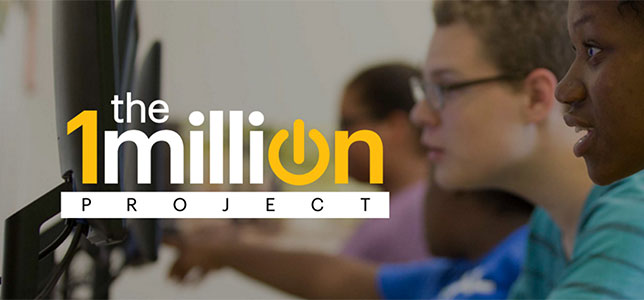
The annual Digital Learning Day, started in 2012, gives educators an opportunity to collaborate with peers, share ideas, try out new digital tools, celebrate education innovation and play a role in the transformation of their own schools and communities. Digital Learning Day 2017 is Thursday, Feb. 23.

As part of its 1Million Project, intended to outfit a million low-income students with reliable connectivity in their homes, Sprint has begun issuing free mobile hotspot devices and wireless connectivity.

The State Educational Technology Directors Association (SETDA) is releasing a new online toolkit, From Print to Digital: Guide to Quality Instructional Materials. Developed in collaboration with state and district digital learning leaders, instructional materials directors and academic officers, this guide provides states, districts and schools with research, resources and examples to support selection of quality instructional materials for learning and teaching.

FCC regulators are telling nine companies that they won’t be allowed to participate in a federal program intended to help them provide affordable internet access to low-income consumers — weeks after those companies were approved to do so.
The second annual “State of the States” report on the state of broadband connectivity in United States schools finds that Hawaii and Kentucky are among a number of states that are leading the way in ensuring that their students have access to equal educational opportunities provided by technology.
Ahead of FETC 2017, the Federal Communications Commission (FCC) Monday approved Internet provider Kajeet to be a Lifeline Broadband Provider, allowing school districts to enroll students from low-income households to receive high-speed internet at home at little-to-no cost to the schools.
The Federal Communications Commission sets aside $3.9 billion annually for E-rate funding, and with $200 million rolling over from 2016, school districts will have access to more than $4 billion in fiscal year 2017 for connectivity upgrades.
Sprint has launched an online donation portal for individuals who want to help provide mobile devices and high-speed wireless internet connection to 1 million high school students in the United States.

More than 10 million students gained access to high-speed Internet at school last year, bringing the total to 34.9 million.
A new partnership between the Kansas State Department of Education, Kansas State Board of Education, Kansas Department of Administration and national nonprofit EducationSuperHighway will bring high-speed broadband to all of the state’s school districts over the next five years.